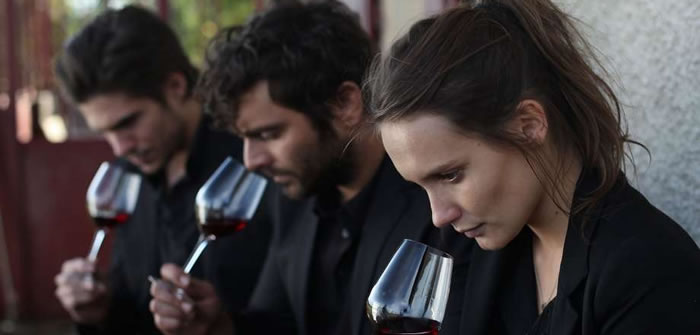Wine helps the emotions flow, but so, apparently, does winemaking in Cédric Klapisch’s absorbing family drama “Back to Burgundy,” a film so rich and pleasurable you’d be forgiven if you thought about it each time you have a glass of red.
Set in the picturesque winemaking region of France with a lot of time spent among the vines, the film recounts the uneasy reunification of three siblings after their father’s death, their efforts to keep the winery going under the threat of a hefty inheritance tax that might force them to sell.
Jean (Pio Marmaï), who hated his father, has been away for 10 years, starting a family and a winery of his own in Australia. He returns as his father lies near death; and after he dies, Jen stays for the harvest to help out — and to grapple with the financial particulars with his sister Juliette (Ana Girardot) and brother Jeremie (François Civil).
Although Jean’s main beef was with his father, his long absence has naturally created some issues between him and Juliette, who is now in charge of the winery, and Jeremie, who has married the daughter of a neighboring winery and is being groomed by her father to perhaps run the rival vineyard.
Each sibling has a personal decision to make which would affect the other two — and the future of the family estate. Jean has a son with his estranged girlfriend in Australia and prefers a straight sale of the estate to pay off the hefty tax and earn a tidy profit. Jeremie is pulled in two directions — his family winery or his wife’s family winery. And Juliette who has essentially been running the place since her father got sick, is quietly gaining confidence after years of being second-guessed by the male-dominated enterprise. She most definitely wants to keep owning and running the family label.
Meanwhile, the grapes need harvesting, and de-stemming, and stomping, and of course, drinking. There are parties, and arguments and tender moments. Any wine aficionado should see this movie, even if the filmmakers had bungled the family dramatics. But the bonus is the film is terrific in all areas, with a dense screenplay by Klapisch and Santiago Amigorena, and engaging performances by all.
Klapisch, who scored hits early in his career with “When the Cat’s Away” (1996) and 2002 “L’auberge espagnole” (“The Spanish Apartment,” 2002), turns in one of his best films.
Perhaps the spirit of the film is best captured when Jean compares winemaking in Australia and France.
“Here you don’t make wine for the next two years,” he says. “You make it for the next 10, 20 years from now. In Australia, Everything’s meant to be fresh, things are not meant to last.
“They’re different pleasures, my love.”

